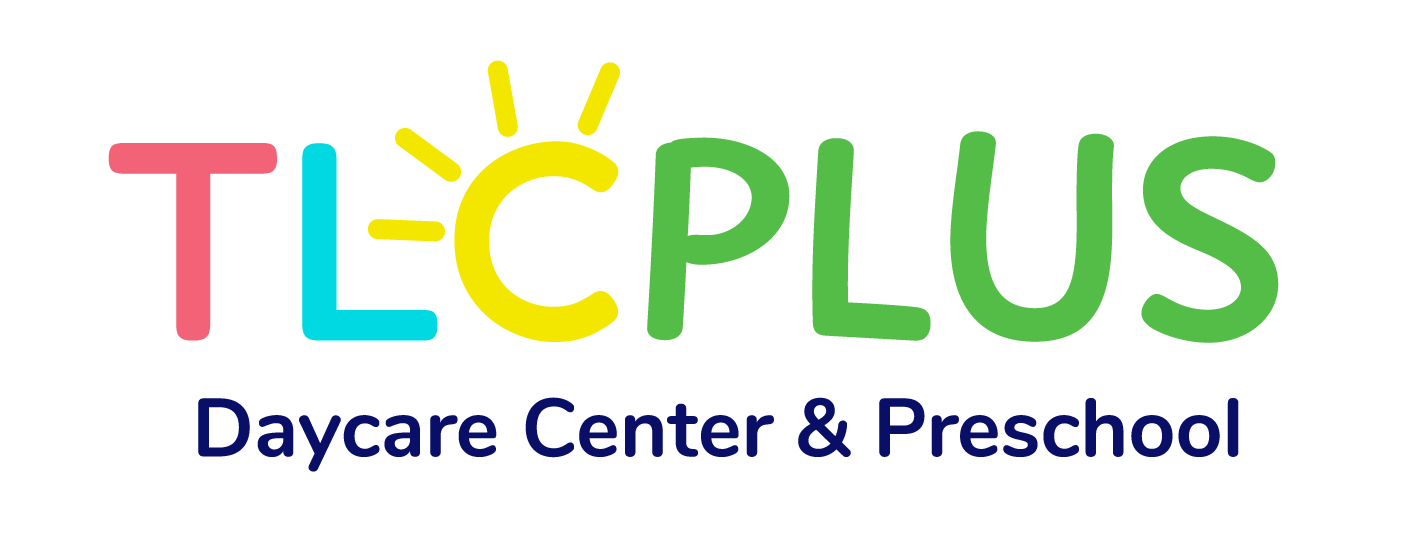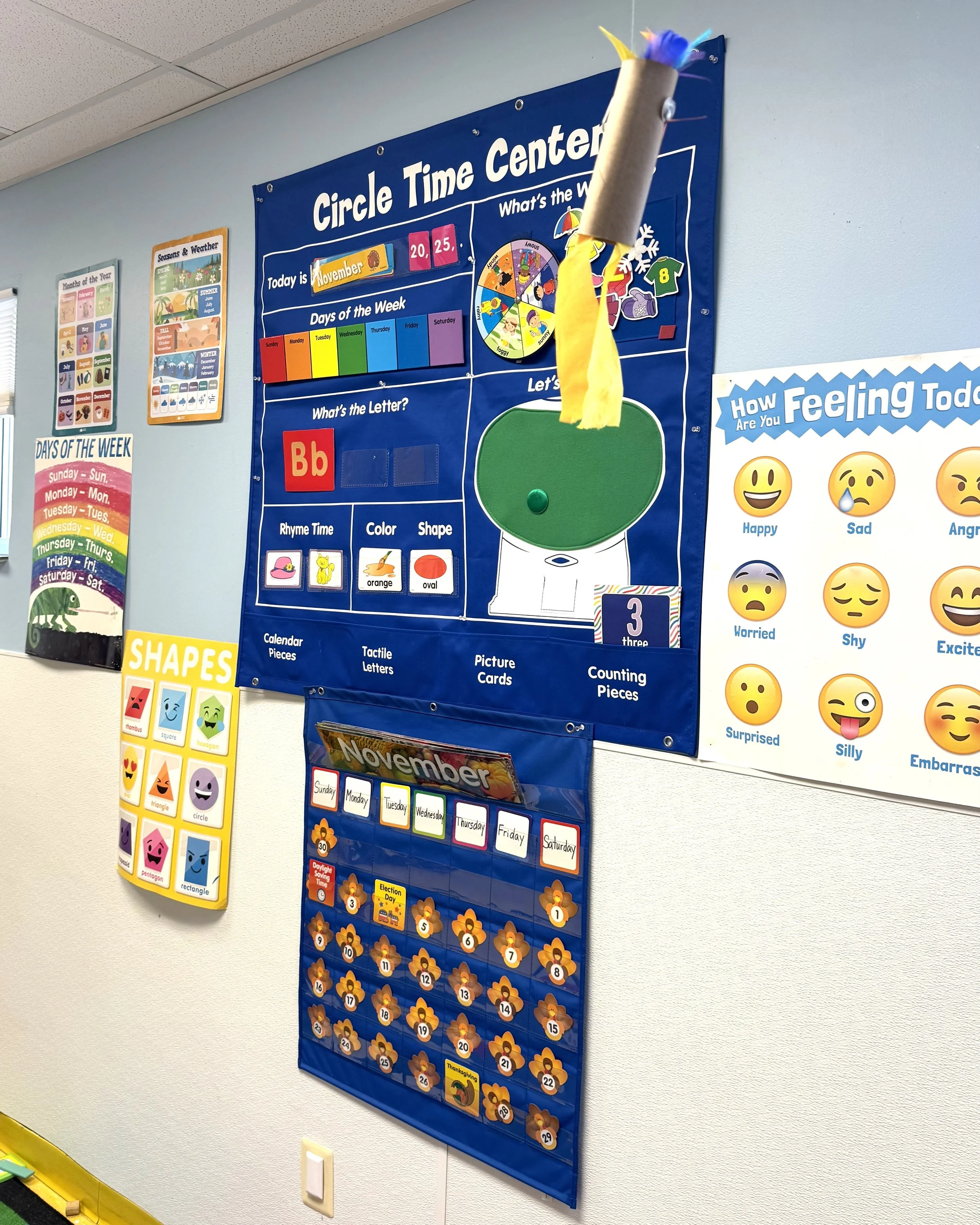Pre-K 3 School Program
3 years, turning 4 years old
Our Pre-K 3 program at TLC Plus is designed to support the growth and development of children between the ages of 3 and 4 years old, preparing them for the next steps in their educational journey.
At this stage, children are refining their skills in key developmental areas and are ready to tackle more structured learning experiences. Our curriculum is aligned with state standards and focuses on enhancing cognitive, social, emotional, and physical skills to ensure children are well-prepared for kindergarten and beyond.
The classroom is structured to provide a balance of guided instruction, independent exploration, and hands-on activities. Each learning area is carefully designed to encourage growth in the following areas:
Creative Arts and Music: At this stage, children engage in more detailed artistic activities, such as creating with different materials, exploring patterns and textures, and expanding their creativity through art projects. Music becomes more structured with an emphasis on rhythm, melody, and song recognition. Children also practice coordination with movement and music through structured dance activities and songs that enhance memory and listening skills.
Physical and Well-Being: Children in the Pre-K 3 class continue to refine both their gross and fine motor skills. They develop strength, balance, and coordination through activities like running, jumping, climbing, and dancing. Fine motor control improves through tasks like cutting with scissors, drawing shapes and figures, building with blocks, and writing with pencils or crayons. Additionally, children practice personal hygiene and develop independence in self-care, such as washing hands, dressing, and using the bathroom independently.
Language and Literacy: Language development is a major focus for this age group, and children expand their vocabulary, sentence structure, and comprehension skills. They are introduced to early literacy concepts such as letter recognition, phonics, and letter sounds. Teachers encourage early reading skills through storytelling, word games, and engaging in conversations. Children begin to recognize high-frequency sight words and practice writing their names and simple words. They also begin to understand the concept of print, such as the direction of reading and recognizing that written words represent sounds and ideas.
Mathematics and Science: Pre-K 3 students begin to understand foundational math concepts such as counting, number recognition, and one-to-one correspondence. They explore basic geometric shapes, size comparison (big/small), and patterns (ABAB, etc.). Activities such as sorting, matching, and classifying objects help build their math skills. In science, children explore the natural world through hands-on experiments and activities. They begin to understand concepts such as cause and effect, changes in the seasons, and the properties of different materials (e.g., solids and liquids). Science exploration is often hands-on, such as through water play, planting, or examining nature.
Social and Emotional Well-Being: At this stage, children are learning to navigate social interactions with increasing independence. They work on skills such as taking turns, sharing, and expressing emotions in appropriate ways. Teachers foster empathy and encourage children to recognize and label their feelings, as well as the feelings of others. Conflict resolution skills are developed through guided activities, where children learn to use words to express disagreements and solve problems. Social skills such as cooperating in group activities, working as a team, and following directions are also emphasized.
Cognitive Skills: Pre-K 3 students develop the ability to follow more complex instructions and engage in problem-solving tasks. They begin to make predictions, ask questions, and express ideas more clearly. Memory and attention span improve as children engage in activities that require focus, such as listening to stories, completing puzzles, and following multi-step directions. Cognitive development is supported by engaging in activities that promote critical thinking, such as sorting, categorizing, and making comparisons. Children also begin to engage in simple math and literacy games that involve memory and pattern recognition.
State Standards and Educational Goals
According to state guidelines for Pre-K 3, children are expected to meet the following benchmarks by the end of the school year:
Language and Literacy: Recognize and name all uppercase and lowercase letters, understand letter sounds, and begin blending sounds into simple words. They should be able to recognize some sight words and be able to write their name and simple words.
Mathematics: Count to 20, recognize numbers up to 10, and understand the concepts of more and less. They should be able to identify and describe basic shapes (circle, square, triangle, rectangle) and create and extend simple patterns.
Physical Development: Demonstrate increased control over fine motor skills, such as holding writing tools correctly, cutting along lines, and building with smaller blocks. Gross motor skills should include running, jumping, and climbing, with increasing balance and coordination.
Social and Emotional Development: Demonstrate an understanding of social norms, such as sharing, taking turns, and using polite language. Children should show emotional awareness, be able to express their feelings, and begin to understand the emotions of others.
Science: Engage in basic science concepts, such as identifying and observing living and non-living things, recognizing the seasons, and exploring simple scientific tools (magnifying glasses, measuring cups, etc.).
Social Studies: Understand basic concepts of community, including recognizing family roles, neighborhood structures, and the importance of cooperation in group settings.
This curriculum is designed to create a comprehensive learning environment that helps children build a strong foundation in all developmental areas.
Through structured learning, play-based activities, and engaging experiences, the Pre-K 3 program ensures that children are well-prepared for the transition to Pre-K 4 and beyond, setting them up for continued success in their educational journey.

